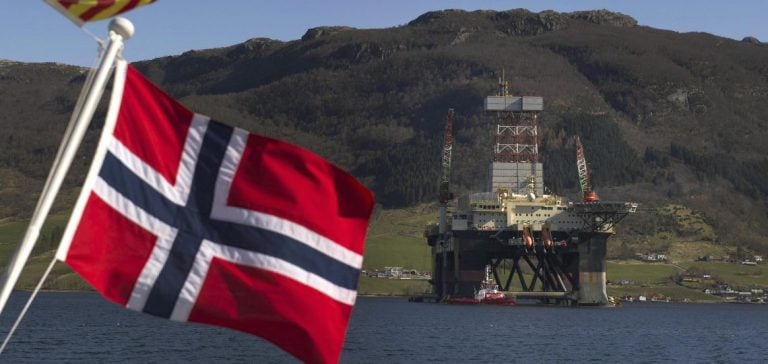Norway’s sovereign fund, the largest in the world, recorded significant gains of 71 billion euros during the third quarter of 2024. This performance, announced in an official statement, was mainly attributed to the drop in interest rates, which triggered a rally in global financial markets.
The fund, whose total value reached 18.870 billion Norwegian kroner (1.597 billion euros) by the end of September, posted an overall return of 4.4% between July and September. Trond Grande, the fund’s deputy CEO, stated that the decrease in rates led to a broad rise in stock markets, allowing all of the fund’s investment sectors to achieve positive returns.
Broadly distributed investments
Equity investments, representing 71.4% of the fund’s assets, achieved a return of 4.5% during this period. The fund is known to be the largest individual investor in global stock markets, with stakes in nearly 9,000 companies across 71 countries. On average, it holds 1.5% of all listed companies globally.
Bond investments, which account for 26.8% of the fund’s assets, also performed well with a return of 4.2% in the third quarter. Meanwhile, the fund’s real estate investments, representing a smaller portion of 1.7% of the portfolio, recorded growth of 0.8%.
Strengthening investments in renewable energy
Although still marginal, investments in unlisted renewable energy projects saw a significant increase of 10.8%, reinforcing the fund’s commitment to the clean and sustainable energy sectors. These projects are expected to play an increasingly important role in the fund’s long-term investment strategy, aiming to diversify revenue sources and contribute to the energy transition.
The value of the fund fluctuates based on market movements, exchange rates, and contributions or withdrawals made by the Norwegian state. Since the end of the quarter, the fund’s value has continued to grow and now exceeds 19.300 billion Norwegian kroner, according to real-time data available on the sovereign fund’s official website.
Established in the early 1990s and fueled by the state’s oil revenues, the Norwegian sovereign fund is intended to finance future spending for Norway’s generous welfare state. It remains a strategic pillar in the country’s wealth management, with a growing focus on diversifying investments to adapt to global market trends and energy policies.






















